MSc in Sports Management
The MSc in Sports Management is a transformative, full-time master's programme tailored to ambitious individuals seeking to expand their knowledge, sharpen their skills and cultivate a deep ethical understanding within the realm of sports management and leadership.
Start application onlineProgramme Overview

The Berlin School of Business and Innovation is in partnership with University for the Creative Arts (UCA). As a result of this partnership, BSBI is able to offer the Master’s in Digital Marketing. UCA is an acclaimed creative institution in the UK that ranks highly in all three of the major UK league tables. The university has also been ranked 13th out of all UK universities in the Guardian League Table 2020 and ranked 7th in the 2021 Guardian League Tables for Business, Management & Marketing.
Generally, contact hours include a combination of lectures, workshops and seminars, individual and group tutorials, in addition to real-time practical activities. Under the direction of carefully selected module tutors, students will participate in live sports matches and events, case-studies, field studies, placement activities, internships, consultancy, working in small groups, independent study and research and technology-enhanced and blended learning.
Also consistent with the QQA’s Subject Benchmark Statement for Events, Hospitality, Leisure, Sport, and Tourism (November 2019), learning opportunities are designed to ensure that students are engaged in subject specific contexts throughout the course. These may include work-related learning; learning opportunities in specialised facilities or using specialised items of equipment, for example, venues and event-specific facilities; and exhibitions contact with the industry, associations, or professional bodies.
This programme is delivered face-to-face, with some online delivery available (‘blended’).
Assessment of the programme includes formative feedback to students throughout the development of their work and summative assessment at the middle and/or end of each term. The type of work students that students submit consist of the following: portfolio, essays, reports, presentations, and group work.
All lecturers and senior lecturers undertake scholarship in their disciplines. Specialist or industry guest lecturers visit the programme, adding to the curriculum delivery to supplement the learning journey of students with relevant professional and global contexts. IT and other technical professionals are also employed by BSBI to ensure the successful operation of the programme.
Programme Fee
Berlin : February, May, October
2025 February, May, October: International students Price: €13,250 | EU students Price: €8,450
Berlin | Check our special offers.
Terms and conditions apply. Find out more here.
The School’s admissions process is subject to the Consumer Contracts (Terms and Conditions). Information on your Right of Withdrawal and our Refund Policy can be found in the BSBI study agreement.
SECURE YOUR PLACE ON THIS PROGRAMME BY APPLYING TODAY.
FIND OUT HOW TO APPLY HERE >>
Programme Structure
This 18-month MSc in Sports Management programme carefully-designed experience combines an academic curriculum with practical learning, team leadership, case studies, field trips, and networking. It aims to prepare students for a rewarding career in this dynamic field, where expertise in sports management, strategic management, marketing, project management, law and human resource management are paramount.
You will also have the opportunity to attend modules on academic research methods as well as to learn the German language alongside your programme.
The modules of this programme are offered and delivered 100% on campus. Students will also have additional access to course and reading materials via the University for the Creative Arts platform.
The modules of this programme are offered and delivered 100% on campus.
Modules
Term 1
Themes in this unit include the following:
- Introduction to Strategic Management in Sports
- Analysis of Sports Environment
- Strategy Formulation and Business Models
- Team Building in Sports
- Strategy Implementation in Sports Organisations
- Performance Measurement and Strategic Control
- Emerging Trends and Challenges in the Sports Industry.
The themes of this unit include the following:
- Data Collection and Processing
- Performance Analysis & Visualisation
- Predicative Modelling & Machine Learning
- Using Artificial Intelligence (AI) to enhance fan engagement and marketing strategies & data driven decision making
- Introduction to Advanced Analytics Techniques (including player tracking; video analysis; and wearable technologies)
Themes of the unit include the following:
- Financial Planning and Budgeting in Sports Organisations
- Capital Structure and Financing Decisions in Sports
- Investment Appraisal and Capital Budgeting in Sports
- Financial Performance Analysis and Valuation in Sports
- Current Trends and Challenges in Sports Corporate Finance
Term 2
Themes explored in the unit include the following:
- Overview of the Esports Industry
- Business Models and Revenue Streams
- Team Management and Player Development
- Esports Events (to be arranged)
- Organisation and Production; Marketing, Sponsorship, and Media Rights
- Current Trends in the Esports Industry.
Themes of the unit include the following:
- Overview of Strategic Human Resources Management in the Sports Industry
- Talent Acquisition and Recruitment in Sports Organisations
- Employee Development and Performance Management in Sports Organisations
- Compensation and Benefits in the Sports Industry
- Organisational Culture and Employee Engagement in Sports
- Social Media and Public Relations in Sports Human Resources
- Current Trends and Challenges in Sports HR Management
Themes in this unit include the following:
- Leading and Managing Teams is Sports Organisations
- Motivation, Empowerment, and Performance Management in Sports
- Organisational Culture and High Performance in Sports
- Ethical Decision-Making and Conflict Resolution in Sports Management
- Current Trends and Challenges in Sports Management
Term 3
The themes of this unit include the following:
- Research Design
- Methods of Data Collection
- Approaches to Analysing Data & Writing Research Proposals
- Data Visualisation
- Predictive Modelling
The themes of this unit include the following:
- Overview of Project Management Theories
- Project Initiation and Planning
- Project Initiation and Control
- Social Media and Public Relations
- Risk Management in Sports Projects
- Stakeholders Management and Communication in Sports Projects
- Project Closure and Lessons Learned in Project Management in a sports organisation
Themes of this unit include the following:
- Introduction to Global Sports Law for Business
- Contracts & Negotiations in Sports
- Intellectual Property and Licensing in Sports
- Labour and Employment Law in Sports (UK and EU specifically)
- Risk Management & Compliance in Sports
- Current Trends & Challenges in Sports Law
Term 4
The final dissertation and final course project are scholarly works based on sound academic principles that contribute to the field of knowledge of sports management. The dissertation, or final course project, will demonstrate the student’s ability to understand, challenge, and solve problems that exist in real-world settings.
The final course project is a comprehensive and strategic analysis of the sports management industry, culminating in the development of a tailored management plan for an emerging or existing sports organisation. This project challenges students to apply key principles and methodologies learned throughout the course to a dynamic and rapidly changing industry.
Study in
Berlin
- Delivery: On campus
- Duration: 18 months
- Intakes: February, May, October
- Campus: Berlin, Germany
- Degree awarded by University for the Creative Arts
- Price: 2025 February, May, October: | €13,250 (international students) | €8,450 (EU students)
The School’s admissions process is subject to the Consumer Contracts (Terms and Conditions). Information on your Right of Withdrawal and our Refund Policy can be found in the BSBI study agreement
Edge Student Hub
Finding the perfect place to live while you study is crucial. BSBI has partnered with Edge Student Hub, to provide an accommodation package that ensures you have a comfortable from day one in Germany. Located just 45 minutes from central Berlin, the accommodation provides convenience and ease. Shared rooms start at €599 per month, with single rooms and shared apartments also available. Secure your ideal living arrangement and focus on your studies without any worries.
Bring a Friend and save €500!
If you have a friend who is also planning to study in Berlin, let your Accommodation Advisor know. You can receive a €500 discount on your final month’s rent for a Shared Room*. Please note that your friend must be enrolled at Gisma, BSBI, UE Germany, or Arden Berlin to qualify for this offer.

Learning Outcomes
Upon successful completion of the Sports Management Masters course students will achieve the following Learning Outcomes (consistent with UCA’s Marking Descriptors for Level 7):
- Experimentation and Innovation: Demonstrates a deep and comprehensive understanding of sports management and management principles, theories, and practices and uses this knowledge to explore possibilities and take risks in academic writing.
- Research and Analysis: Conducts independent research projects; collects, and analyses data; and presents findings effectively, contributing to sports leadership and management knowledge and best practice.
- Engaging with Practice: Collaborates effectively in multidisciplinary teams, demonstrating leadership and critical thinking, especially in the development of approaches to business strategy.
- Realisation and Communication: Communicates complex sports leadership and management concepts and strategies clearly and persuasively to diverse audiences, both orally and in writing, building a sustained rapport with relevant processes and technologies.
- Personal and professional Connectivity: Critically evaluates alternative viewpoints, appreciating diversity and integrating ethical and sustainability principles into sports management strategies and practice.

Career Progression
BSBI’s dedicated Careers Services staff members actively work with students during their course of study and with them as alumni to find meaningful and sustainable employment opportunities. While students are on campus, the staff members help students hone their job skills; create employment objectives and strategies to achieve these objectives; and connect students and alumni to industry contacts. Additionally, the Career Services staff members host review resumes, conduct mock interviews, and host career fairs.
BSBI’s dedicated Careers Service helps sports management students and alumni reach their career goals and realise their potential. The Service offers specialised support and aims to build long-lasting relationships with local and national employers.
Minimum Age: 21
Academic Qualifications:
- Successful completion of a bachelor’s degree from a recognised university
- Consideration will also be given to applicants with a minimum of 3-years relevant managerial experience, demonstrating an ability to study at postgraduate level.
English Language Requirements:
Access the Proof of English Guide (UCA) here.
You can apply now to study with BSBI! It’s quick and easy, here’s how it works:
- Create an account here
- Select the programme and intake you want to apply for
- Complete all sections of the online application
- Submit online application
- Our Admissions Team will liaise with you with regards to next steps







